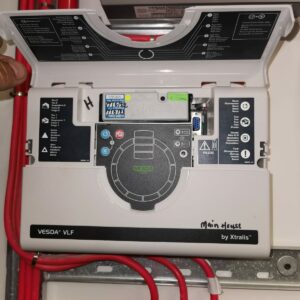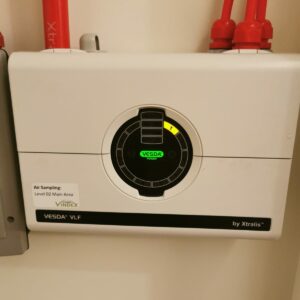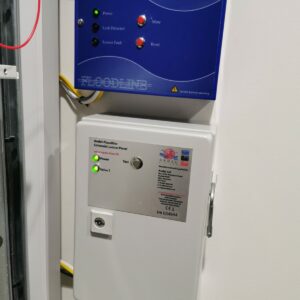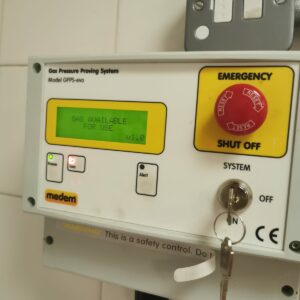FIRE ALARM SYSTEMS
REGULATORY COMPLIANCE
Respecting UK standards
UK fire alarm regulations may seem unclear if you are not a fire safety professional. Here is a simple guide to the latest UK fire alarm legislation.
The fire alarm regulations are part of the Regulatory Reform (Fire Safety) Order 2005, known as the ‘RRO’.
In addition, the UK Government advises that all fire detection and alarm systems are installed and maintained in compliance with the current British Standard, BS 5839 (our guide below is based on BS 5839).DO I NEED A FIRE ALARM?
Current UK fire alarm regulations mandate that all business premises must be equipped with a “suitable fire detection system”.
This essentially means that a fire outbreak can be easily identified and the occupants can be quickly warned.
This does not imply that all business premises require a fire alarm system.
It is unlikely that you will need a fire alarm system if all of the following conditions are met:
- Your premises are small, simple and on one level or open space.
- You do not store high-risk substances, such as chemicals.
- You do not perform high-risk activities, such as cooking.
- You do not have vulnerable occupants, such as the very young, elderly or disabled.
- A fire would be easy to spot if it broke out anywhere on the premises.
- A cry of “fire!” would be easily heard by all occupants.
If one or more of these conditions is not met by your business, you are probably in need of a fire alarm system.
If you have any doubts, your Fire Risk Assessment report should indicate whether or not you need to install automatic fire detection.
If you do not already have a Fire Risk Assessment, we strongly recommend that you have one completed, as it is the centerpiece of your business’s fire safety plan.
WHAT TYPE OF FIRE ALARM DO I NEED?
The 3 main types of fire alarm systems are conventional, addressable and wireless:
Conventional Fire Alarm
- Divides your premises into main zones
- In the event of an alarm, the fire alarm panel will indicate the zone, but not the specific area.
- Best suited for small or low risk environments.
Addressable Fire Alarm
- Each one of the individual devices has its own unique electronic address
- If one of them goes off, the central fire alarm panel tells you exactly where the problem is.
- It is best suited for larger or higher risk environments – for example, schools, nursing homes, hospitals.
Wireless Fire Alarm
- Uses a secure wireless link between the sensors and the fire alarm panel
- Generally works as an addressable system, but without the wires.
- It is best suited to premises that do not want a large number of cables, for example churches and historic buildings.

WHO CAN INSTALL A FIRE ALARM?
The UK Fire Alarm Regulations do not make any requirements as to who can install a fire alarm, only that they must be 'competent'.
This means that the person or company installing your fire alarm must
- Understand the different types of fire alarm systems and how they work
- Be knowledgeable about the main makes and models of fire alarms
- Be able to identify the grade and category of the fire alarm system you need
- Be able to design a fire alarm system that meets the requirements of the grade and category.
- Have a solid understanding of British Standard BS 5839
- Be able to design a system that meets the requirements of BS 5839
WHAT HAPPENS IF YOU ARE NOT IN COMPLIANCE?
If something is found to be wrong, action can be taken which may range from providing information and advice to prosecuting those responsible in court. For more serious safety violations, you can be fined and/or sentenced to imprisonment.

LET'S GET
Protected from Fire
We take a comprehensive approach to fire safety covering all aspects from the installation of fire alarms and extinguishers to fire risk assessments and emergency lighting. We service all fire safety equipment, fire panels & alarm systems.
Subscribe Now
To our news letter




